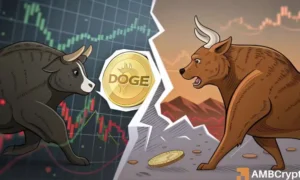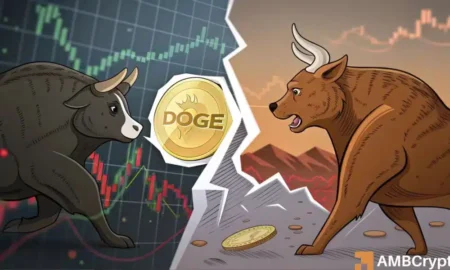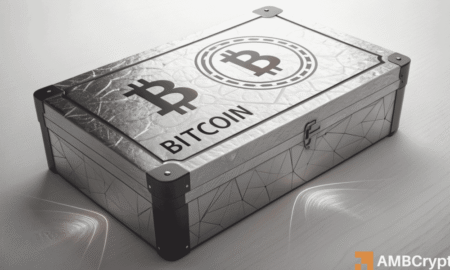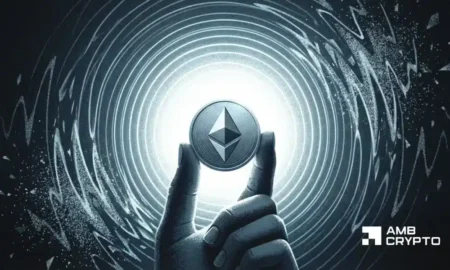Burger King’s Foray into Cryptocurrency: The Buzz Around “Burger Koin”
The fast-food giant Burger King is making headlines once again with its intriguing proposition of launching its own cryptocurrency, dubbed “Burger Koin.” This announcement, officially teased via a recent post on X (formerly Twitter), has ignited conversations and sparked speculation about the company’s venture into the digital asset sector. While the question posed—“Shall we make a crypto burger coin called Burger Koin?”—has caught the attention of many, the response from the crypto community has ranged from excitement to skepticism. Prominent figures in the industry, like Dogecoin founder Shibetoshi Nakamoto, have been quick to respond with doubt, saying simply, “No.”
Despite the catchy name and playful branding, skepticism from crypto enthusiasts is prevalent. Historically, Burger King has dipped its toes into the world of cryptocurrency before, launching the “WhopperCoin” in Russia back in 2017. This earlier effort served as a unique experiment but ultimately did not gain significant traction. More recently, in 2023, the brand signaled a renewed interest in digital currencies by accepting cryptocurrency payments in a Paris location through partnerships with Alchemy Pay and Binance Pay. They even took their commitment a step further by collaborating with the brokerage platform Robinhood to reward members of their Royal Perks program with crypto prizes in the U.S. Although these initiatives suggest a growing interest, they also create a backdrop of uncertainty as the crypto market experiences significant volatility.
Indeed, timing plays a critical role in Burger King’s potential entry into cryptocurrency. The current state of the global crypto market is characterized by a downturn, with a recent decrease in market capitalization dropping by 2.82% to $2.68 trillion. This decline has raised concerns about a more severe selloff. Nevertheless, some indicators point to stabilization, with the valuation settling at approximately $2.7 trillion—a modest decline of 0.50% in daily evaluations according to CoinMarketCap. There’s speculation that Burger King might be adopting a strategy akin to that of Michael Saylor’s firm, formerly known as MicroStrategy, which has gained notoriety for its aggressive accumulation of Bitcoin during market downturns. If Burger King aligns itself with this strategy, it could indicate a broader, calculated move to leverage the long-term potential of digital currencies rather than participating merely in passing trends.
Another interesting angle to consider is the cultural and political implications surrounding cryptocurrency’s growth. Donald Trump’s historic Bitcoin transaction during his presidential campaign, which involved purchasing burgers at a New York City restaurant, may represent a pivotal moment in bringing cryptocurrencies into mainstream conversation. As Bitcoin advocate Anthony Pompliano accompanied Trump during this notable event, it highlighted the intertwining of digital currencies within American culture, potentially serving as inspiration for brands like Burger King to explore similar avenues. This underscores the notion that while skepticism may dominate the initial response to “Burger Koin,” the merging of cryptocurrency with established brands could pave the way for future acceptance and innovative integrations within business models.
Despite the undercurrent of skepticism, the conversation surrounding Burger King and cryptocurrency indicates a bigger trend that could redefine how global brands incorporate digital assets into their operations. Initial criticism of such ventures is not uncommon, often giving way to acceptance as the concept matures. If “Burger Koin” manages to gain traction and resonate with consumers, it could become a significant milestone for both the fast-food industry and the cryptocurrency sector. The bold step by Burger King could inspire other brands to experiment with cryptocurrencies, reflecting a larger movement toward the integration of digital currencies in everyday transactions.
As the landscape of cryptocurrency continues to evolve, corporate intrigue into digital currencies like “Burger Koin” suggests that major brands are considering innovative approaches to engage with their customers and enhance loyalty programs. The outcome of these ventures could hold significant implications for the business landscape. Whether driven by economic strategy or cultural revival, Burger King’s exploration of cryptocurrency highlights the growing interest of traditional sectors in the digital finance realm, a sign that brands are eager to adapt in an ever-changing market.
In conclusion, while the prospect of “Burger Koin” might initially be met with skepticism, it is essential to recognize the potential implications of such innovations in the fast-food industry and beyond. As Burger King navigates this unexplored terrain, the possibility exists for a paradigm shift in how brands perceive and integrate cryptocurrency. This initiative could redefine customer engagement strategies, positioning Burger King at the forefront of a changing marketplace. With the ever-present fluctuations in the crypto market, only time will tell if this playful proposition transforms into a serious venture, but for now, it certainly keeps the conversation alive.
















